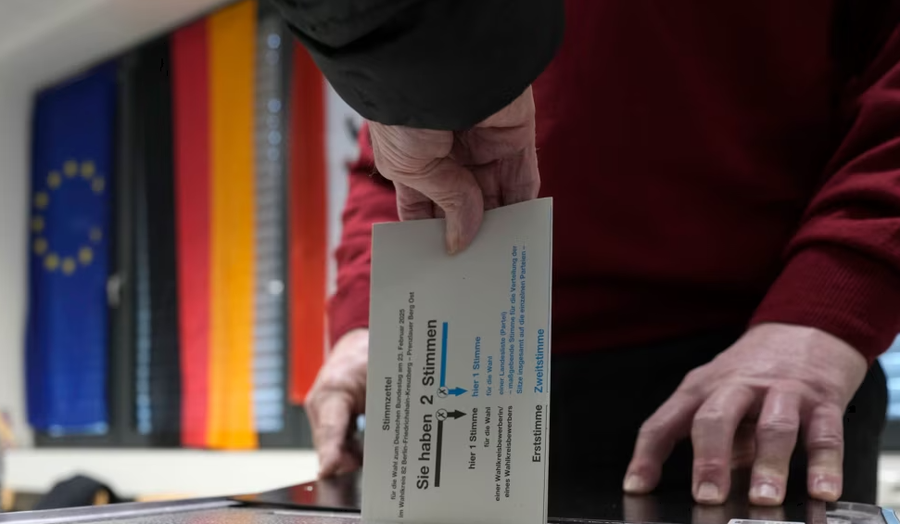
Germany's center-right opposition leader Friedrich Merz declared victory in Sunday's general election while Social Democratic Chancellor Olaf Scholz conceded defeat. The Alternative for Germany (AfD) looks set to have the best result for a far-right party in the country since World War II.
Germans went to the polls after an election campaign dominated by concerns about the multi-year slowdown of Europe's largest economy, pressure to curb immigration and growing uncertainty about the future of Ukraine and Europe's alliance with the United States.
Chancellor Olaf Scholz voted in the eastern city of Potsdam. His Social Democrats (SPD) party is expected to have its worst result since World War II.
Conservative leader Friedrich Merz cast his vote in the western town of Arnsberg. Asked how election day would go, he smiled and said he was confident of victory.
"I think Friedrich Merz understands the economy. And I think he will rebuild our country better. We have lost so much. This is unfortunate. We have lost so much and we have a beautiful country. And here is our hope," says a voter.
"From my perspective, it is important that calm returns and that we find a common language with all parties and that Germany regains the status we had and security returns," says another voter.
Mr Merz's CDU/CSU has consistently led the polls but is unlikely to win a majority given Germany's fragmented political landscape, forcing it to find coalition partners.
These negotiations are expected to be complicated after a campaign that exposed sharp divisions over migration and how to deal with the AfD, in a country where far-right politics has traditionally carried a particularly strong stigma due to its Nazi past.
The AfD is on track to come in second place for the first time in a national election, according to analysts. However, the AfD is unlikely to govern for now, as all major parties have ruled out the possibility of cooperation, although some analysts believe it could pave the way for a victory in 2029.
An interim government that would serve for a period of several months would create a vacuum in the heart of Europe.
Germans are more pessimistic about their living standards now than at any time since the financial crisis in 2008. The percentage who say their situation is improving fell sharply from 42% in 2023 to 27% last year, according to the Gallup poll.
Attitudes towards migration have changed greatly from the policies pursued earlier during the migrant crisis in Europe in 2015./ VOA (A2 Televizion)











